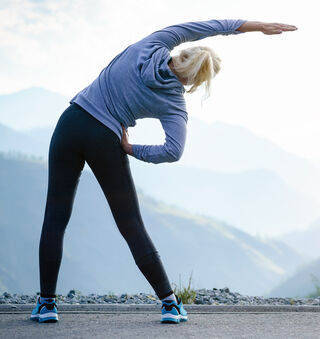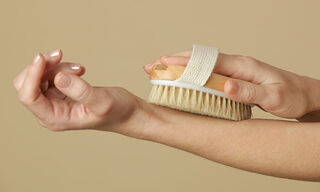Health
The 3 Easiest Lifestyle Changes for Mental Health
Where to start to boost your mental health.
Posted December 30, 2020 Reviewed by Gary Drevitch

Of course, there is a wealth of information available on improving our mental health, but knowing where to start can be overwhelming. When working with clients to change their lifestyles in order to boost mental health, I like to start with these 3 simple tips.
1. Aerobic Exercise
Aerobic exercise is the best way to quickly boost good-mood chemicals. New research suggests that high-intensity interval training (HIIT) is the very best type and it doesn’t take too long to do. HIIT is exercise that is characterized by relatively short bursts of vigorous activity, (30-60 seconds) interspersed by rest or low-intensity recovery exercise (60 seconds). You can start slowly with 1-5 minutes in total and work your way up to 10 minutes, 3 times a week and then increase to 5 days a week.
HIIT enhances brain-derived neurotrophic factor (BDNF) and is an ideal way to enhance cognitive function and memory along with metabolic function (Jiménez-Maldonado, Rentería, García-Suárez, Moncada-Jiménez & Freire-Royes, L., 2018).
Is your client complaining about not getting movement-motivated? Conduct a telehealth session while you and your client are pedaling a stationary bike or walking at a distance together so you can spark their interest in this new habit-forming brain health exercise.
2. Switching Out Your Fats
Switching out unhealthy fats for healthy fats is an easy change. No one ever complained to me that they didn’t like butter. Yet butter, especially raw, grass-fed butter, is a better alternative to many fats including harmful canola, corn, or sunflower oils. Switch out fake butter and margarine because they are synthetic and have preservatives and additives. Replace these fake fats with extra virgin olive oil, raw butter, or virgin sesame or coconut oil.

3. Dry Skin Brushing
Skin brushing is another of my go-to suggestions because it takes 2 minutes, is easy to do, and helps decrease dissociation while it enhances immune function. As we continue to deal with the uncertainty and stress from Covid-19, it’s common to feel disconnected and out of our bodies.
Skin brushing is a simple way to boost our mood and bring us back to our bodies. Always brush toward your heart with a dry brush, begin at the feet and slowly move up toward your knees, belly, and chest. Brush your abdomen and arms as well. Remember: It should feel good and help you relax.
Try sharing these simple self-care methods with your clients and ask them how they are feeling.
I address the art and science of these methods in my course Nutrition and Integrative Medicine for Diabetes, Cognitive Decline, and Alzheimer’s Disease.
References
Jiménez-Maldonado, A., Rentería, I., García-Suárez, P. C., Moncada-Jiménez, J., & Freire-Royes, L. F. (2018). The Impact of High-Intensity Interval Training on Brain Derived Neurotrophic Factor in Brain: A Mini-Review. Frontiers in neuroscience, 12, 839. https://doi.org/10.3389/fnins.2018.00839.


